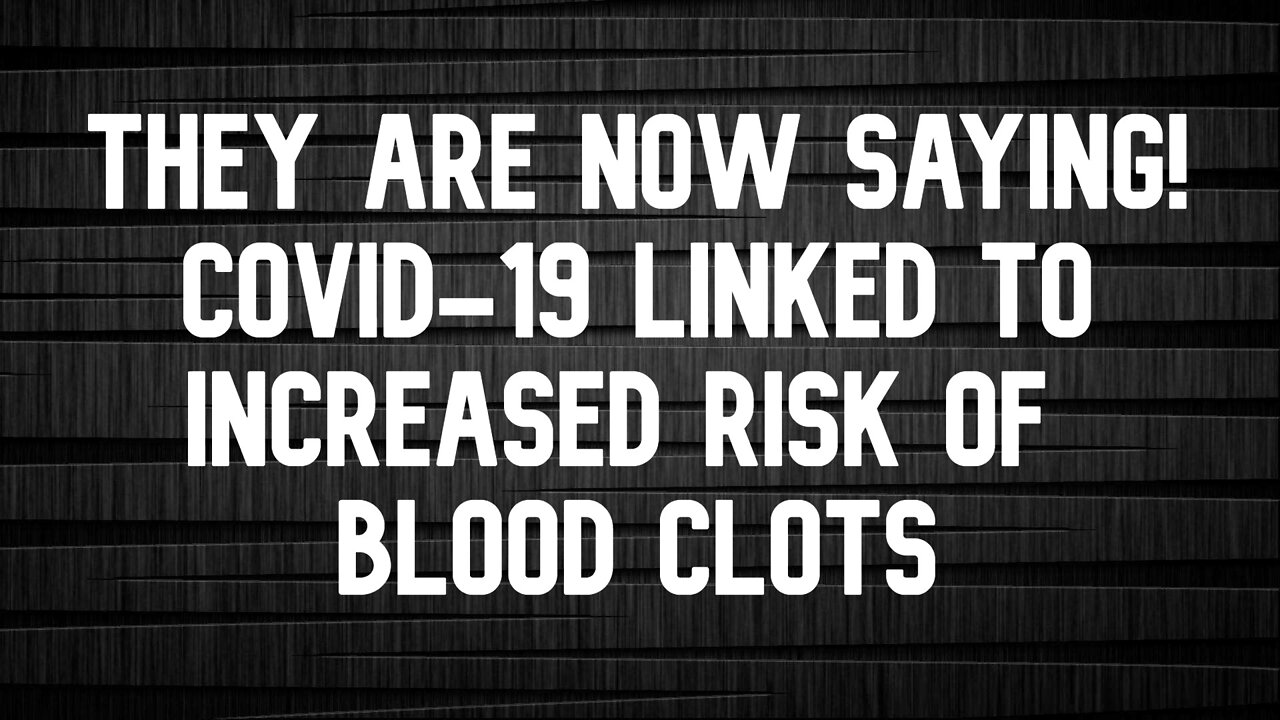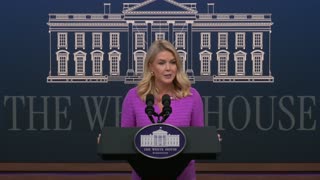Premium Only Content

COVID-19 linked to increased risk of blood clots, study finds -Now they FLIP The Script
And now they Flip The Script !
Article reads !
COVID-19 linked to increased risk of blood clots months later, study finds
A new study out of Sweden has found that those who contract COVID-19 have an increased risk of certain types of blood clots, which can be fatal, up to six months after infection.
The observational study, published Thursday in the British Medical Journal, reports an increased risk of deep vein thrombosis, a blood clot in the leg, up to three months after COVID-19 infection; pulmonary embolism, a blood clot in the lung, up to six months later and a "bleeding event" up to two months.
According to researchers from Umea University, these events were higher in patients with underlying health conditions and those with more severe COVID-19.
Researchers also found there were more blood clot-related events reported during the first pandemic wave, compared with the second and third waves. However, they note this could be due to improvements in treatment and vaccine coverage in older patients following the pandemic's first wave.
The study's authors say the findings suggest that COVID-19 is an "independent risk factor" for blood clots and bleeding.
Researchers say the results highlight the importance of using medical treatments such as blood thinners to prevent the development of thrombosis amid the pandemic. Such treatment is known as thromboprophylaxis.
"Our findings arguably support thromboprophylaxis to avoid thrombotic events, especially for high risk patients, and strengthen the importance of vaccination against COVID-19," the study's authors wrote.
While a separate study published in August found that blood clots can also occur after COVID-19 vaccination, experts say the risk is much smaller compared to blood clot risk from infection.
Previous data has shown that COVID-19 increases the risk of serious blood clots, known as venous thromboembolism or VTE, but there has been little evidence according to researchers on the length of time this risk is increased.
To analyze the risk of deep vein thrombosis, pulmonary embolism and bleeding, such as gastrointestinal bleeding or a burst blood vessel in the brain, after COVID-19 infection, researchers looked at more than one million people with confirmed infection between February 2020 and May 2021 using national registries in Sweden.
According to the study, this was then compared to the data for more than four million people without COVID-19.
Researchers analyzed the risk of blood clots during the period after a person developed COVID-19 symptoms, compared to before they tested positive and long after signs of the virus had disappeared.
The study found a fivefold increase in the risk of developing deep vein thrombosis, a 33-fold increase in the risk of a pulmonary embolism, and a nearly twofold increase in risk for a bleeding event in the 30 days following infection.
Although the risks were highest in patients with more severe illness, those with mild COVID-19 not requiring hospitalization had a threefold increased risk of deep vein thrombosis and a sevenfold increased risk of pulmonary embolism. There was no reported increased risk of bleeding in those who experienced mild infections.
As this was an observational study, researchers say they cannot establish COVID-19 as the cause of these blood clots, but have a couple theories on why it happens. These possibilities include the virus having a direct effect on the layer of cells which line blood vessels, an inflammatory response to the virus, or the body making blood clots at inappropriate times.
Researchers also acknowledged "several limitations" which might have affected their findings, including limited COVID-19 testing during the first wave and blood clots being underdiagnosed in patients.
Despite such limitations, researchers say their findings are "largely consistent" with similar studies on the association between COVID-19 and thromboembolic events.
In an accompanied editorial on the study, also published Thursday in the British Medical Journal, researchers at the University of Glasgow note that governments are removing public health measures and shifting to a "live with COVID" approach to managing the pandemic, despite the continued emergence of new, more transmissible variants of concern.
However, they say the new study is an important reminder of "the need to remain vigilant to the complications associated with even mild SARS-CoV-2 infection, including
-
 6:06
6:06
Mike Martins Channel
6 days ago $0.02 earnedBanks are ready to Stage Cyber Attacks on themselves, then blame Iran or Russia
3571 -
 LIVE
LIVE
Right Side Broadcasting Network
5 days agoLIVE: President Trump Holds a Rally Celebrating his First 100 Days in Warren, MI - 4/29/25
10,106 watching -
 1:10:39
1:10:39
The Officer Tatum
1 hour agoLIVE Amazon EXPOSED After PROPOSED Tariff Website Feature, Canadian Election + MORE EP 97
12.2K2 -
 1:40:46
1:40:46
Russell Brand
4 hours agoIT’S WAR! Canada Elects GLOBALIST, As PM Vows To “FIGHT” Donald Trump – SF574
139K71 -
 24:25
24:25
Beach Broadcast
4 hours ago4/28/2025 - Big Vatican Comms! Holy See! JA! Trump quote "I run the country and the world"
30.7K18 -
 1:03:04
1:03:04
Timcast
5 hours agoTrump SLAMS Amazon Tariff Pricing, Billionaire WARNS Shortages Coming Ami Economic Collapse
183K152 -
 1:49:55
1:49:55
Steven Crowder
7 hours agoWhy Canada's Election Results Are A Golden Opportunity For Trump, America & Alberta
444K374 -
 46:41
46:41
The White House
5 hours agoPress Secretary Karoline Leavitt Briefs Members of the New Media, Apr. 29, 2025
74.7K24 -
 2:54:15
2:54:15
The Dana Show with Dana Loesch
4 hours agoWH BLASTS AMAZON OVER TARIFF COST DISPLAY | The Dana Show LIVE on Rumble! APRIL 29TH 2025
45.5K4 -
 2:54:56
2:54:56
NEWSMAX
7 hours agoBorder Victories & Canadian Blunders: 100 Days of Trump | The Rob Carson Show (04/29/2025) | NEWSMAX Podcasts
56.9K